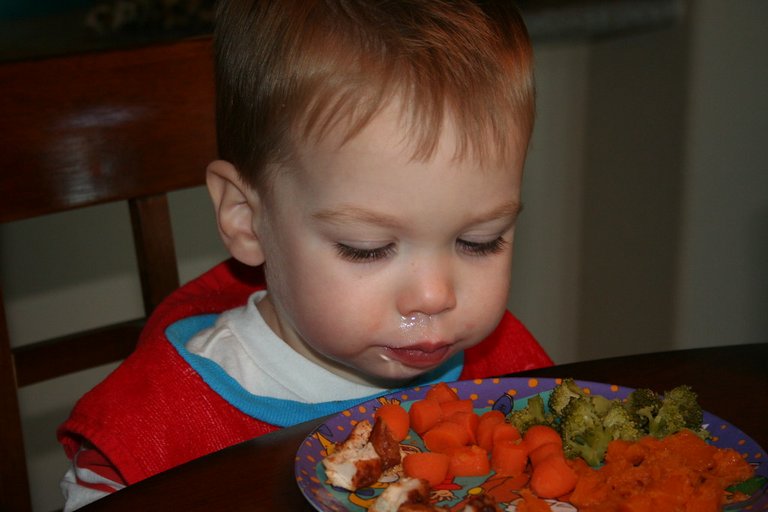There are a lot of sleep disorder ranging from sleep talking, sleep walking, but today, I want to talk about sleep eating. It will be very odd for me to find on my bed a cup of tea or a ketchup when I wake up from sleep. This will be very disturbing for me because it can pose a lot of danger even beyond what I would have thought. So I am just glad I do not sleep eat and I hope I do not so I don't go consume something toxic in the process.
People who sleep eat often get up at the middle of their sleep and they end up eating strange and weird things. If I were to be sleep eating, there is a possibility that I could eat my dog food, buttered wig, and possibly glycerin plastered bread. For guys maybe buttered cigarette, and for some people, raw bacon, uncooked food and so on.

So let's take a look at a case of a 53-year-old Caucasian woman who was referred to a sleep clinic by her family doctor because of some strange behavior while sleeping. She didn't know if she had any hereditary predisposition because she was adopted as a child, and she didn't have any neuropsychiatric condition but she was in the hospital because she had been told severally by her family members that she was always found moving around unconscious, eating foods, snacks, or even going to the extreme length of cooking meals at odd hours of the night even when she was unconscious.
While she asleep, her body sought out food and in some cases, she would have more than one episode in a night. When family members ask her questions, she would answer incoherently and in the morning, she would wake up with plates in her hands, cup beside her bed and cutlery laying just beside her head. She would wake up not remembering any of these events and this is why she is in the hospital.
When interrogated how often she finds these plates and kitchen utensils on her bed, it was clear that she could have the episodes at least 3 times in a week. She wasn't undergoing any form of stress at the time of her session but she had been using sleeping medications for the past 5 years so as to be able to overcome insomnia as a result of her Husband's Obstructive sleep apnea (OSA). She was taking zolpidem 10 mg/day for the past 5 years.

Sleep-Related Eating Disorder is similar to other sleep disorders like sleepwalking where the unconscious sleeper stands in between periods of their sleep cycle to snack on food because they body requests for it and they usually do not always remember these events. There are two cases of eating at night where one has to do with binge eating and in this case the person is awake and this condition is known as night eating syndrome, while the other is Sleep-Related Eating Disorder has to do with binge eating as well but this time around they aren't awake.
Till date, the cause of Sleep Related Eating Disorder is yet to be known explicitly but people who sleep walk have a high change of experiencing SRED and genetics has not been implicated in this at least for now. Researchers have been able to implicate stress and comorbid sleep disorders like restless leg syndrome, or sleep apnea. This episodes will usually happen during Non Rapid Eye Movement phase of sleep which is usually in the first half of the night during a transition the Rapid Eye Movement phase of Sleep.

During REM sleep, we dream and we are detached from the body to prevent us acting what we dream but with conditions like Sleep-Related Eating Disorder (SRED), the person crave food and dream of eating food but this is done during the NREM sleep phase when the body is able to move and act its dream physically.
One medication has been implicated with SRED is sleeping pill. This was firs observed in 2002 and by 2006, more cases of SRED and association with sleeping pills increased. To help with this case, doctors always advice that patients reduce stress and anxiety since they are linked to sleeping and eating disorder. Doctors also advice against the use of alcohol and caffeine. In the case of Sleep Apnea using CPAP can help and in the case of restless leg syndrome, using medication is a good way to treat it. Researchers have seen a connection between anti-seizure drugs and SRED treatment. This field is still very new and we are learning a lot very fast.
Post Reference
https://www.ncbi.nlm.nih.gov/pmc/articles/PMC3618478/
https://www.ncbi.nlm.nih.gov/pmc/articles/PMC2945843/
https://www.mdpi.com/2514-183X/8/1/1
https://www.thedailymeal.com/eat/you-wont-believe-what-some-people-eat-their-sleep
https://www.sciencedirect.com/science/article/abs/pii/S1087079208000828?via%3Dihub
https://stanfordhealthcare.org/medical-conditions/sleep
https://www.drugs.com/zolpidem.html
https://www.webmd.com/sleep-disorders/understanding-sleep-problems-basics
https://www.mayoclinic.org/diseases-conditions/restless-legs-syndrome
https://www.healthline.com/health/eating-disorders/sleep-related-eating-disorder#types
Image Reference
Image 1 || Pexels || Cheerful woman eating fried chicken at table with lemonade
Image 2 || Pxhere ||sleep_bed_woman_bedroom_sleeping_dream_tired_relax
Image 3 || Flickr ||Eating Dinner with a Runny Nose

 Follow
Follow 